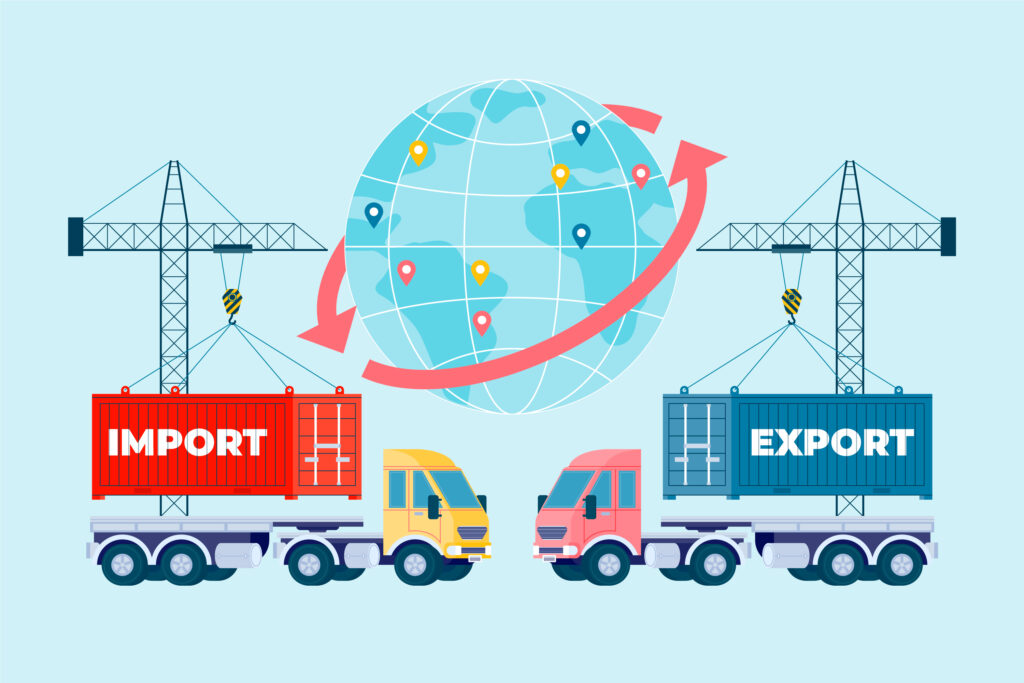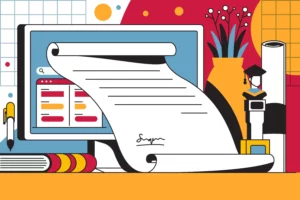In the last ten years, the transportation and logistics industry has gotten much bigger because of online shopping, worldwide trade, and people having more money to spend. To keep up, businesses in this field have had to change how they work, using more digital tools to meet customer needs and adopting automation and new technologies.
One area that plays a crucial role in the success of transportation providers is effective contract management. The transportation industry relies heavily on contracts to formalize relationships with transportation providers, ensure compliance with regulations, and manage risks. However, manual contract management processes can be time-consuming, inefficient, and prone to errors. That’s where contract management software comes in.
Understanding Contract Management in Transportation
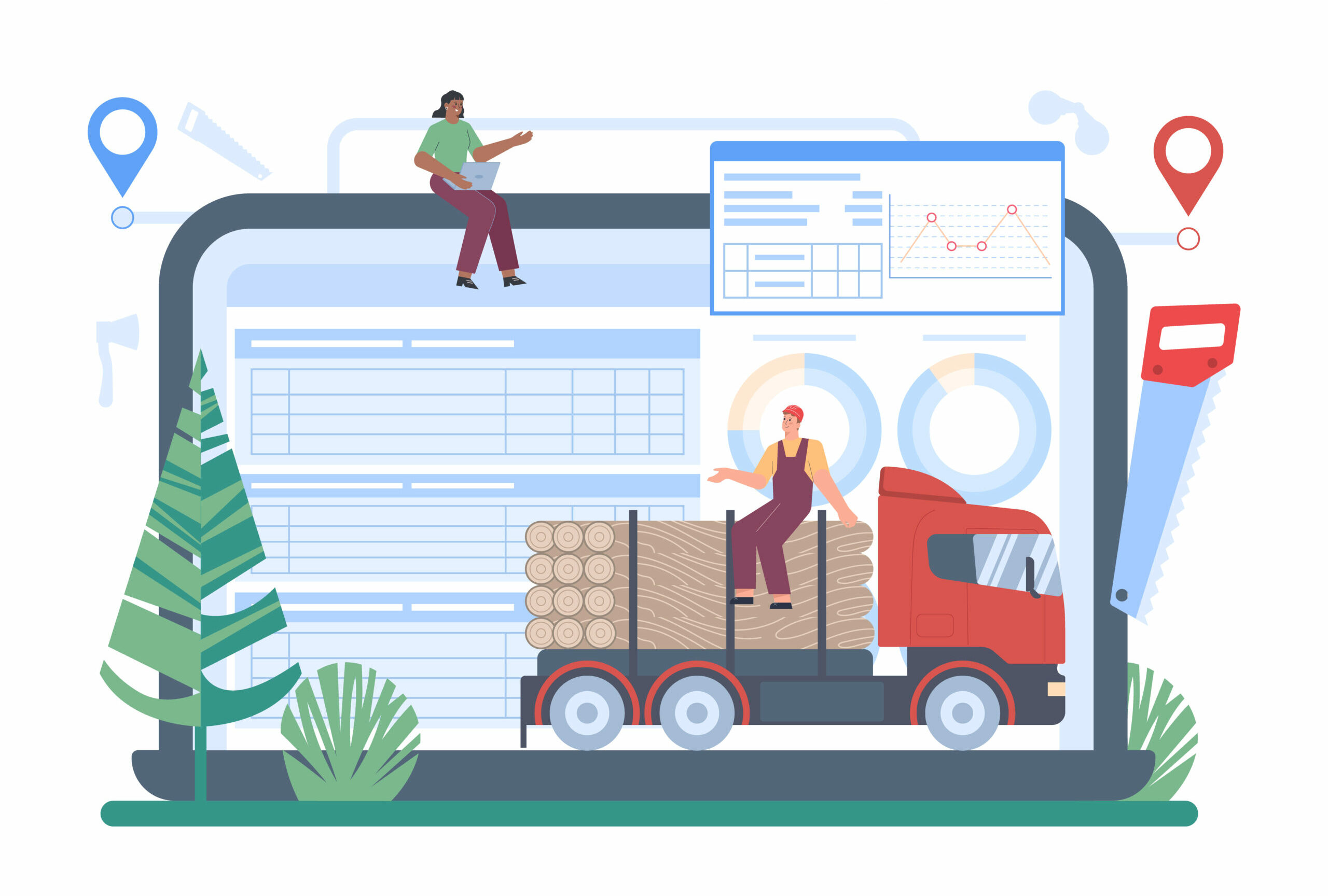
Contract management means handling contracts from when they are made to when they are finished. This includes negotiating terms, signing, carrying them out, and renewing them when needed. This process ensures that all parties involved follow the agreed terms.
Contract management is crucial for logistics companies and transportation providers in the transportation industry. These companies rely on contracts to clearly define their responsibilities and obligations. Proper contract management helps them meet regulatory requirements, avoid legal issues, and manage risks effectively.
For logistics companies, contracts can include agreements with suppliers, clients, and service providers. Managing these contracts well ensures that deliveries are on time, relationships with partners are strong, and costly delays or contract breaches are avoided.
Transportation providers’ contracts often involve agreements with clients who want goods moved and with other service providers involved in the transportation. Managing contracts well helps these providers operate smoothly, stay safe, follow rules, and deal with risks such as delays, damage, or loss.
Key Components of Transportation Contracts
Transportation contracts in the logistics industry typically include several key components. These components define the rights and responsibilities of each party involved and provide a framework for smooth transactional processes. Some key components of transportation contracts include:
- Payment and Billing: Transportation contracts spell out when payments are due, what happens if payments are late, and any extra fees that might apply.
- Warranties and Certifications: These clauses describe the commitments or standards that the transportation provider must meet to guarantee the quality and safety of their services.
- Damages as a Result: Transportation contracts may have rules about who pays for damages that occur during shipping, such as if goods are lost or damaged.
- Safety: Contracts often have rules saying that the transportation provider must make sure goods stay safe while they’re being moved.
Related Article: MSA Agreements: Your Guide To Master Service Agreement
Types of Contracts Used in Transportation Firms
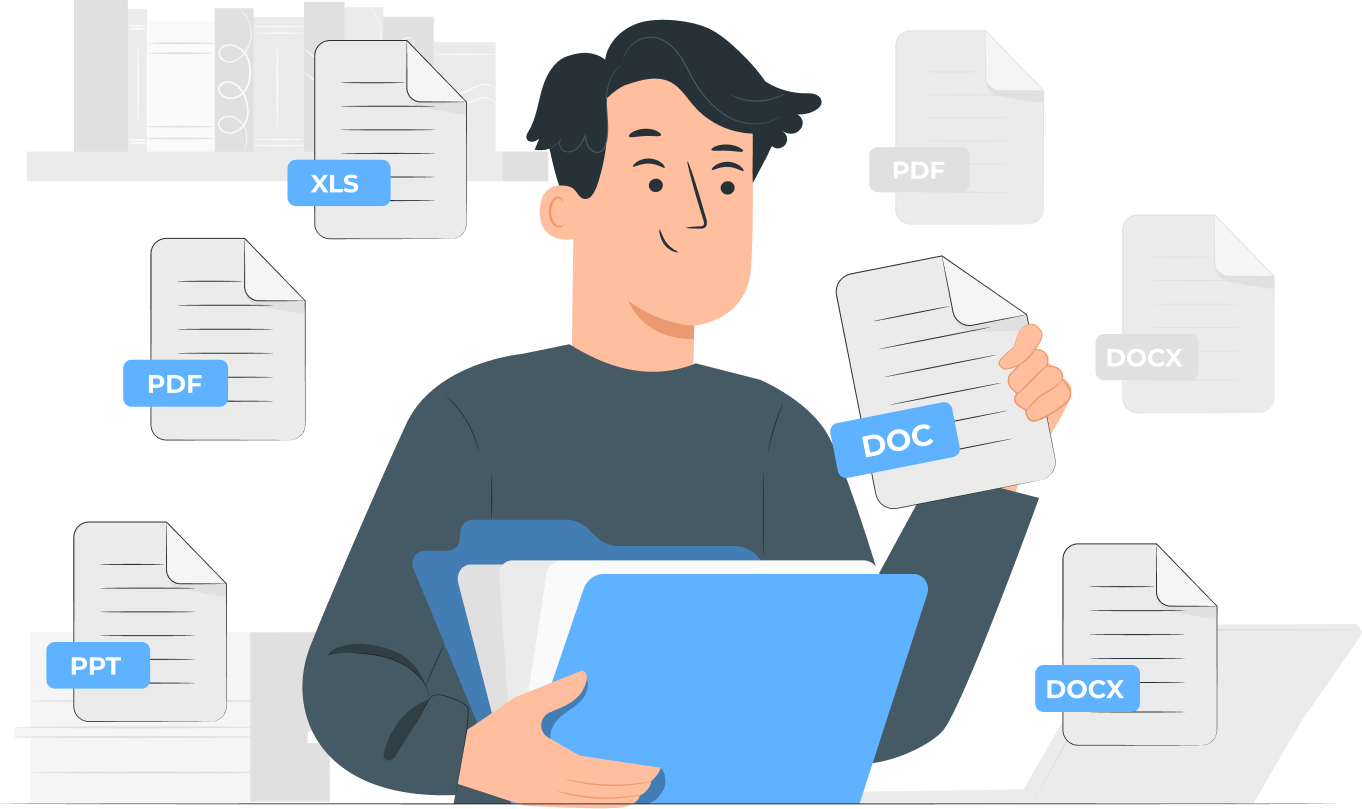
Transportation Service Agreements
A Transportation Service Agreement (TSA) is a contract between a transport service provider and a customer. It explains what kind of transportation will be provided, what each party is responsible for, how much it will cost, and who pays for damages if anything goes wrong. TSAs are important because they make sure both the provider and the customer know what to expect, which helps avoid arguments and ensures that goods are moved smoothly.
Freight Forwarding Agreements
Freight Forwarding Agreements are contracts between a freight company and a client. They outline how shipments will be arranged and coordinated. Freight forwarders act as intermediaries, organizing the transportation of goods from the manufacturer to the final destination.
It includes details like what services will be provided, what documents are needed, shipping routes, payment terms, and who is responsible for delays or damages. These agreements help both parties set clear expectations and make sure the logistics process runs smoothly and efficiently.
Warehouse Agreements
Warehouse Agreements are contracts between a warehouse company and a client. They explain how goods will be stored, including details like how long, how much it costs, how they’re handled, how secure they are, and who’s responsible if something gets damaged or lost. These agreements make sure goods are stored safely and efficiently, with clear rules on how they’re managed. They also spell out what both the warehouse company and the client need to do, which helps prevent arguments.
Distribution Agreements
Distribution Agreements are contracts between a company that makes products and another company that sells them. These contracts say where the products can be sold, how much they cost, who’s in charge of advertising them when they’ll be delivered, and when they can be sent back. These agreements are important because they create a clear plan for how products are sold and make sure both sides stick to their promises.
Service Level Agreements (SLAs)
Service Level Agreements (SLAs) are contracts between a service provider and a customer that explain what kind of service the customer can expect. These agreements usually include goals for how well the service should work, like how quickly problems are fixed or how often the service is available. They also say what happens if the service doesn’t meet these goals. SLAs are used in industries like IT and telecommunications to make sure everyone knows what to expect and to keep the service running well.
Related Article: Master Contract Generation: A Comprehensive Guide
Problems of Transportation Industry
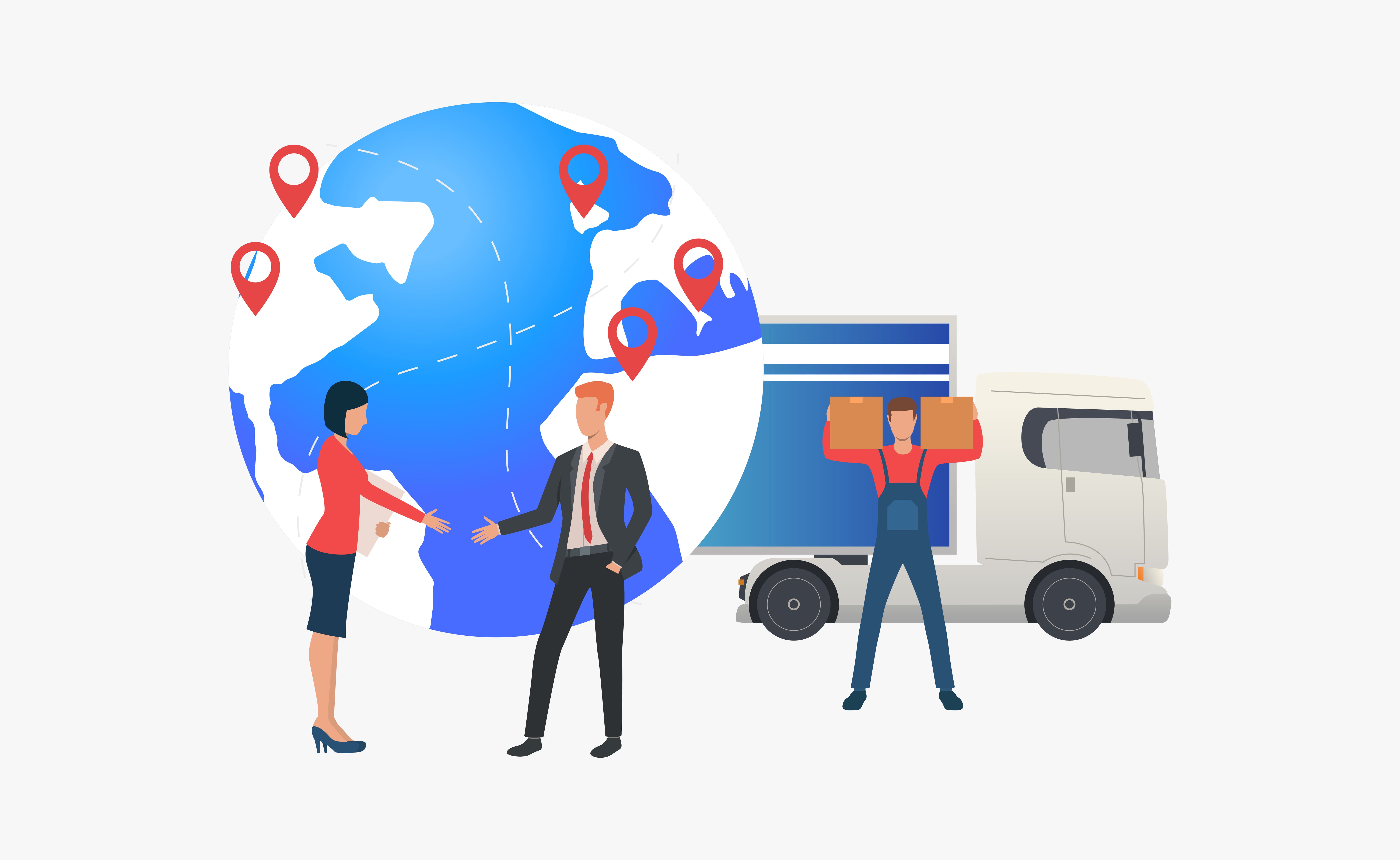
- Transportation and logistics companies face fragmented business functions and rely heavily on contracts, leading to high operational costs.
- Complex supplier relationships and outsourced operations often hinder efficiency and competitiveness.
- Digitized and automated operations give competitors an edge by streamlining processes and reducing costs.
- Improving operational efficiency through technology adoption becomes crucial for staying competitive in the industry.
Enhancing Supplier and Vendor Relationships Through Effective Contracts

Strategies for Building Strong Partnerships
Building strong partnerships in the transportation industry requires strategic contract negotiation and management. Here are some strategies for building strong partnerships with suppliers and vendors:
- Clear Communication: Establish open and transparent communication channels with suppliers and vendors to ensure alignment of goals and expectations.
- Mutual Trust and Respect: Create trust and respect by negotiating contracts fairly, keeping promises, and maintaining a good working relationship.
- Shared Goals and Incentives: Make sure transportation companies and suppliers/vendors have the same goals and benefits in mind to work together well and succeed together.
- Performance Monitoring: Regularly check and assess how well suppliers and vendors are doing, using the goals set out in their contracts as benchmarks.
- Continuous Improvement: Foster a culture of continuous improvement by encouraging feedback, implementing best practices, and addressing any issues or concerns proactively.
By adopting these strategies, transportation providers can build strong partnerships with their suppliers and vendors, leading to improved operational efficiency and customer satisfaction.
Leveraging Contracts for Better Negotiations
Contracts are powerful tools for negotiations in the transportation industry. By leveraging contracts effectively, transportation providers can achieve better negotiation outcomes and favorable terms. Here are some ways to leverage contracts for better negotiations:
- Clear and Specific Terms: Make sure contracts have clear, specific, and enforceable terms that protect the interests of the transportation provider.
- Performance-Based Incentives: Offer rewards based on performance in contracts to motivate suppliers or vendors to meet or surpass expectations.
- Flexibility: Incorporate flexibility into contracts to accommodate changing business needs or unforeseen circumstances.
- Inclusion of Dispute Resolution Mechanisms: Include ways to resolve disagreements quickly and effectively, like arbitration or mediation clauses, to handle any issues that come up.
- Continuous Monitoring and Evaluation: Regularly check and assess how well suppliers or vendors are doing based on the terms and conditions in the contracts.
By leveraging contracts in negotiations, transportation providers can strengthen their position, achieve favorable outcomes, and maintain mutually beneficial partnerships with suppliers and vendors.
Related Article: Top 7 Contract Management KPIs For Success
CLM for the Transportation Industry
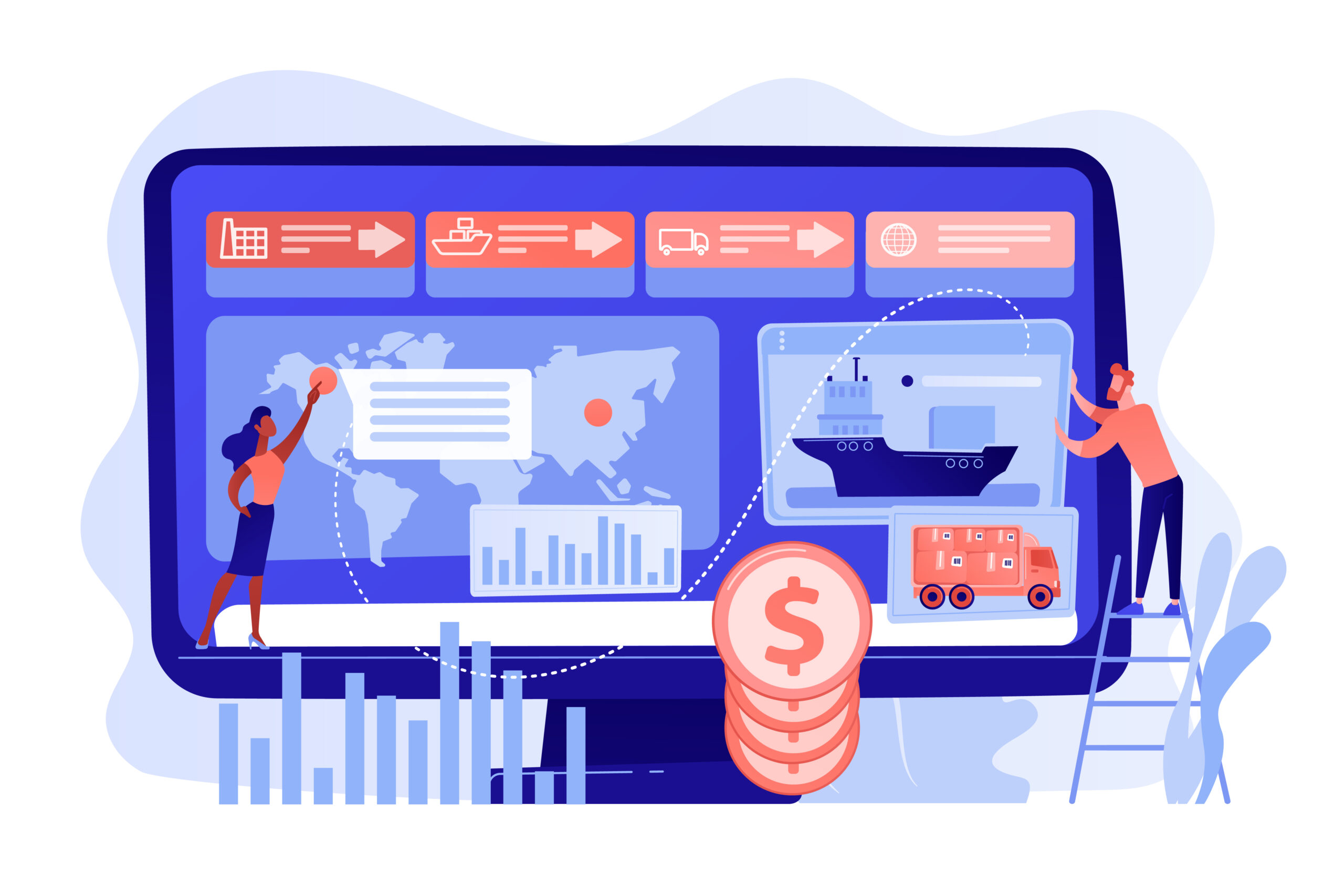
CLM software for transportation consolidates all contract-related tasks into one system. It handles creating contracts, gaining approvals, and monitoring compliance automatically.
This software provides clear insights into contract duties and potential risks, helping companies refine terms, manage legal and financial risks, and meet regulatory standards. By streamlining operations and enhancing contract management, CLM software empowers transportation companies to operate efficiently and maintain a competitive edge in their industry.
What You Need to Get Started?
To begin managing contracts in the transportation industry, you’ll need a contract management system that can handle every stage of the contract’s life. This system should have features such as contract creation, negotiation, execution, storage, and performance tracking.
It should also provide a centralized repository for all contract-related information and offer advanced analytics capabilities for better visibility and decision-making. Additionally, it is essential to understand the specific needs and requirements of the logistics sector when implementing a contract management system. This includes considering factors such as regulations, compliance, risk management, and the unique challenges faced by transportation providers.
Identifying Your Contract Management Needs
Before you start using contract management software, it’s important to figure out exactly what you need from it. This means understanding the types of contracts you handle in transportation, like transportation and logistics contracts. You should also think about what your organization specifically needs, such as how many contracts you manage, if you need any special features, and how well it works with other systems. When you know what you need from your contract management, you can pick a system that matches and makes managing contracts easier.
Related Article: Best Contract Management Software: Top 10 CLM In 2024
Why Choose Volody’s CLM Software?

Volody’s software helps transportation companies manage contracts more efficiently. It simplifies handling supplier relationships, improves visibility across multiple locations, and speeds up approval processes with smarter contracts.
Volody’s AI contract lifecycle management software is designed to simplify contracting for transportation and logistics companies. It puts all contract-related tasks in one place, helping legal and business teams automate routine work, track obligations accurately, and make approvals faster.
Our AI technology helps companies stay in control of their spending across different contracts and improve how they sell their products and services. This unified approach helps businesses operate more efficiently and effectively manage their contractual relationships.
Features of Volody’s AI CLM Software:
Obligation Management
Obligation Management is a feature designed to assist the transportation industry. It helps in tracking and managing regulatory obligations effectively, ensuring companies stay updated on compliance requirements, deadlines, and standards specific to transportation operations. By centralizing this information, it enables proactive management of obligations, reducing the risk of oversights and penalties.
Central Repository
Central Repository is a feature designed to streamline information management within the transportation industry. It serves as a centralized hub where regulatory requirements, compliance data, operational standards, and other critical information are stored and easily accessed. This centralized approach enhances efficiency, supports informed decision-making, and facilitates comprehensive compliance management for transportation companies.
Customizable Templates
Customizable Template is a feature tailored to meet the specific needs of users within the transportation industry. It allows for the creation and adaptation of templates that can be customized according to individual requirements. This feature helps users simplify tasks like creating contracts, handling compliance paperwork, and managing daily operations. It makes managing different parts of their business easier and more efficient.
Risk Mitigation
Risk Mitigation in the transportation industry involves proactive measures to identify and address potential risks. It helps prevent issues that could disrupt operations or lead to liabilities, such as delays, accidents, or regulatory non-compliance. By taking early action to manage these risks, transportation companies can ensure smoother operations, minimize disruptions, and maintain compliance with industry regulations. This approach not only protects the company’s reputation but also enhances safety and efficiency in transportation operations.
Frequently Asked Questions
What Are the First Steps in Setting Up a Contract Management System?
To set up a contract management system for the transportation industry, start by figuring out what you need from the system. Next, pick the software that fits those needs. Then, create one main place to keep all your contract info. Centralization and repositories are the keys to tracking contracts and improving efficiency.
How Do I Choose the Right Contract Management Software for My Business?
When picking contract management software for your transportation business, think about how it works, how easy it is to use, if it can grow as your business grows, if it connects with other systems, and if it has the tools your team needs. Look for features like dashboards, analytics, and customizable workflows to streamline contract management processes.
Conclusion
Effective contract management is essential for success in the transportation industry. By streamlining processes and using technology, businesses can improve efficiency and compliance. Setting up a good contract management system includes a few steps: deciding what you need, choosing the right software, training your staff, and monitoring how well it works. It’s important to overcome challenges like regulatory compliance and risk management.
Strong partnerships through contracts can lead to better negotiations and improved relationships with vendors. Case studies show how companies have improved their operations with good contract management practices. By learning from these examples, businesses can enhance their contract management strategies for long-term growth and success.
